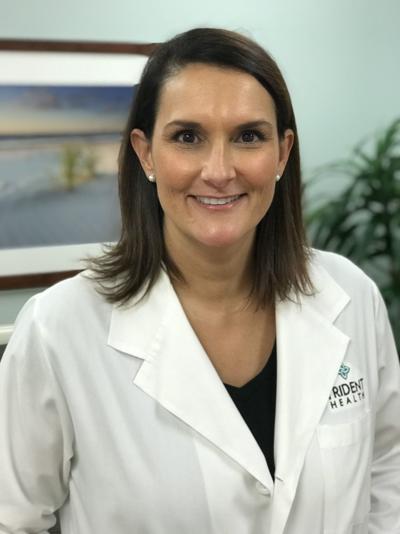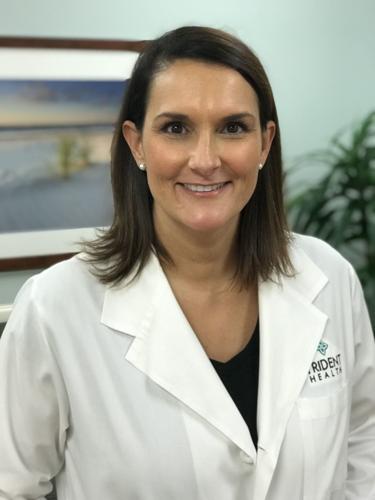Dr. Karen Gersch knew at a young age that she would one day become a surgeon.
“I told my parents when I was about eight-years-old,”Gersch said. “I told everyone this. I never changed my mind.”
It would be a grueling road for Gersch before she would eventually fulfill her lifelong dream. But her determination would make the effort worthwhile. In October she was hired as Trident Medical Center’s first cardiothoracic surgeon specializing in performing minimally invasive bypass surgery, valve surgery, lung surgery and tumor removal from the chest. She also performs traditional open heart, lung and chest surgeries.
The journey to become a surgeon is not one that many women have traditionally been able to make.
The Society of Thoracic Surgery estimates that women make up about 5 percent of practicing cardiothoracic surgeons in the U.S.

Gersch
“There are not too many women in this field because, quite simply, it takes too long to become a cardiothoracic surgeon,” Gersch said in an email.
When she started the process, Gersch was required to complete a general surgery residency following four years of college and then four years of medical school. Next, aspiring surgeons would complete six or seven years of general surgery training before starting cardiothoracic surgery training-which took two to four years. And then a fellowship in cardiothoracic surgery was required.
“By the time we were finished (with the training), you are well into your 30s,” Gersch said. “This does not bode well if you want a family.” In addition, Gersch said at the time she was training there were no regulations on work hours. She worked over 100 hours per week. Such a workload makes it virtually impossible to sustain a pregnancy, Gersch said.
“Fortunately, many of us ladies protested and demanded changes,” Gersch said.
Because of the persistence of Gersch and her peers, residents no longer need to complete the six or seven years of general surgery training. Instead, they can go directly into accelerated cardiothoracic programs.
“There are so many great women candidates who are gobbling up these positions (now),”Gersch said. “I am positive that more women will become cardiothoracic surgeons.”
Gersch was able to beat the odds by building a career while simultaneously growing her own family. She and her husband have five-year-old twin daughters. However, she admits the struggle to maintain a work and life balance has not been easy.
“There have been countless nights when I come home from a long day and finally get to snuggle with my twin daughters, only to be called back to the hospital for a patient issue,” Gersch said. “If I could figure out how to have more time, my challenge would be solved.”
‘Re-training’ her brain to think ‘minimally invasively’
Minimally invasive surgeries are performed using the da Vinci robot system. Gersch explained the system provides for 3D visualization and allows for ports, or tiny incisions, to access the patient’s body. Specialized instruments are then used to pass through the ports. Gersch controls those instruments- she can make them cut, sew, dissect or perform a number of other actions during a procedure.
“The magic of these surgeries is the team performing them,” Gersch said. “I, the surgeon, am only one part of this. The team is imperative.”
Every team member is “an expert,” in identifying any problems,” Gersch said. She emphasized the importance of preparing for every procedure by creating well thought out plans before starting a surgery. She creates “a plan A and plan B and a plan C,” before each surgery.
In traditional cardiac surgeries, the patient’s chest is completely opened up allowing surgeons to see and control everything. But such a large incision means the patient will have increased pain and a longer recovery time. In contrast, minimally invasive surgeries allow the patient to recover almost immediately.
“These (minimally invasive) surgeries are more complex, take more planning, and require every person on the team to be an expert,” Gersch said. “We are not interchangeable with the other surgery teams. We have learned to ‘re-train’ our brains to think minimally invasively.”
Remember that “this day is not a given”
Gersch, like other medical professionals, advises patients to be mindful of how they treat their bodies. The key to wellness is practicing a healthy lifestyle, she said.
“I want people to know that ‘this day is not a given,’” Gersch said. “Exercise. Eat healthy. Do not smoke. Think about what you are doing and how that action will affect someone else.”
Gersch and her husband are making sure they lead by example for the sake of their twins.
“My girls love to come to the garage and watch me ride my peloton,” Gersch said. “They cheer me on as if I were in a race. It cracks me up.”
While they may be all giggles now, Gersch said she knows her healthy lifestyle will eventually influence them to exercise as well.
Another observation they are beginning to make is that their mother works very hard.
“They know that ‘mommy has to go fix someone,’” Gersch said. “I hope that this will help them be mindful of others and instill in them a desire to serve.I love my job because I can help people. I think this is the only thing were are supposed to do in our life, ‘help one another’. I tell my twins all the time, ‘God has made us to be kind to one another, always help’.” Among her many blessings, Gersch said, is having a loving and supportive husband. Without his commitment, their family unit would not be so strong.
“When I am not home, they have an incredible dad who is always there for them,” Gersch said. “This is so important. Dads are so underrated in our society. I am so thankful that my girls have such an amazing father to help guide them.”








